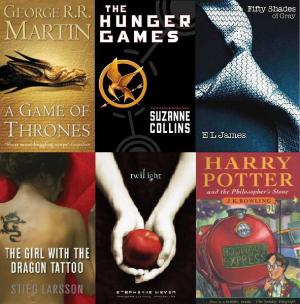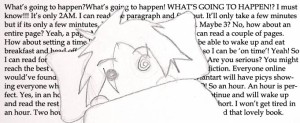Last post I mentioned I would be posting something about vampires since ‘paranormal romance’ and all that jazz has made it cool. I thought it was about time I made my belated contribution.
Congratulations new Vampire parent(s)!
Welcome to one of the most rewarding experiences in your everlasting journey of eternal youth and beauty! You have bitten your first protege and deemed them worthy to be a vampire, but the transition from human to vampire isn’t as easy as a simple bite.
It takes the most patient, fair but strict vampires to create a model vampire to enter human society unnoticed until the damn vampire hunters come sniffing around.
To help you and protege foster a relationship of love and equality, here are a few guidelines taken from the book!
The golden rule in this guide is never change your human-lover-and-part-time-snack into your protege. Its like falling in love with the dreamy bad boy at school. Its a phase and it never lasts. Several vampire psychologists have written books on the subject.
1. New vampires, or baby vampires, are the embodiment of two of the most sinister creatures between heaven and earth: The human baby and the hormonal teenager who is misunderstood.
5. Your protege is going through supernatural puberty. He/she thinks they know better than you and they can control their urges.
10. When they get out of control, use your complimentary gloves and gas mask with this book to place garlic outside their room. Its for their own good. Tough love is a good thing.
17. Your protege will exhibit similar symptoms of bi-polarism, called by Vampire Standford students as ‘supernatural-polarism’.
Your protege will one minute try to be human and next minute he/she is having a frat house blood binge with all the cool new proteges.
18. Do not let your protege hang out with the cool protege from next castle/mansion/house/bar. They’re magnets for smart humans with sharp wooden tools and vampire hunters.
25. Do not try to break up your protege’s relationship with the vampire hunter.It’ll only strengthen their resolve to kill you. Instead encourage the relationship, and pretend to admire your protege’s strength for holding onto his/her humanity with the vampire hunter.
Sooner or later, she/he’s going to get hungry for the rare blood steak that is called vampire hunter. Remember why there aren’t many vampire hunters? They’re a delicacy.
28. Let them hang out with the responsible protege of that nice vampire that invited you to dinner last decade.
55. Never underestimate a good hunting trip together. It will deepen your relationship.
98. Always teach your protege the value of a human who’s a health freak. They eat organic and exercise regularly making them much more nutritious for your protege’s needs.
Statistics from the underground Harvard vamp-med school show proteges who eat humans on an organic diet become much stronger and pass through supernatural puberty faster than proteges who didn’t.
For more great tips on how to raise your protege, please purchase the book!
Yes.
I expect many angry emails.






